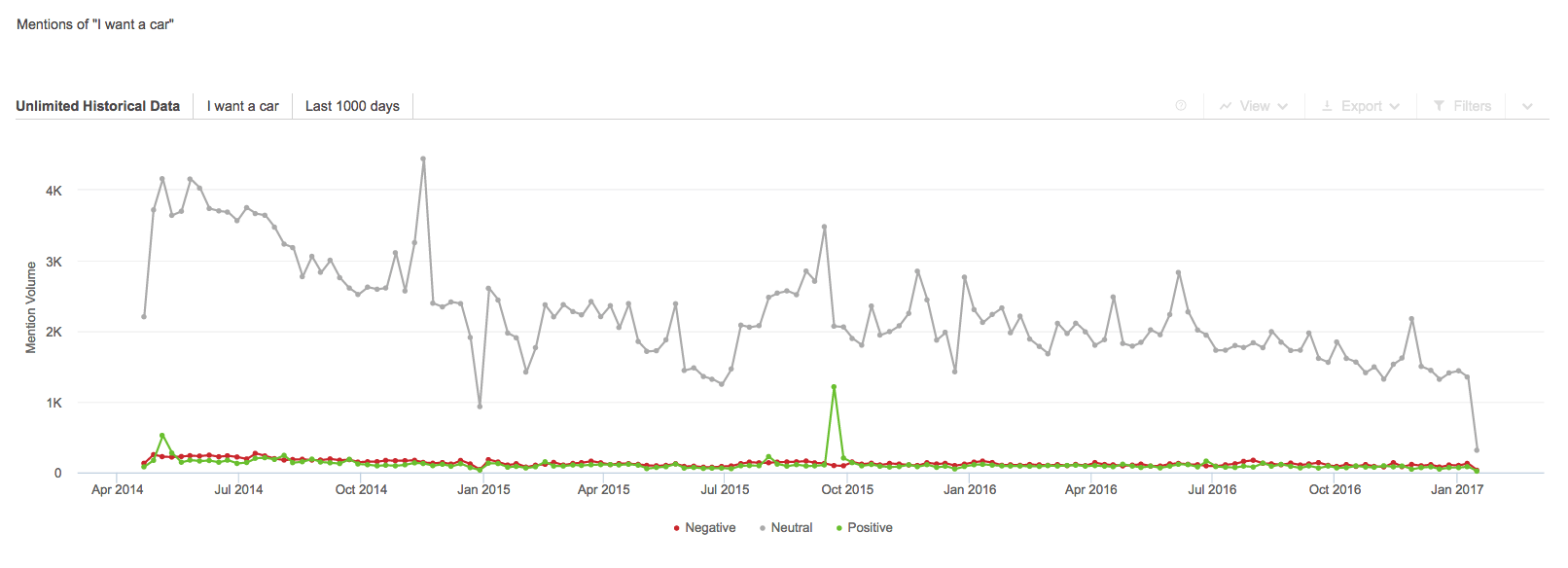Brandwatch now offers three-year searches of Unlimited Historical Data
The UK-based social intelligence firm is employing the Twitter Decahose, offering what it says is the fastest tool for historical searches of online news and conversations.

Social intelligence provider Brandwatch launched this week its Unlimited Historical Data for searching online conversations and news over the recent past.
The UK-based company says this new offering is the fastest tool for custom historical analysis of online news and conversations.
Marketers can search by topic without a limit on the number of queries over three years of historical data, with results returned in seconds or minutes. The capability is built around Brandwatch’s new use of the Twitter Decahose of data, which makes available 10 percent of tweets on any topic over the past three years.
Brandwatch then extrapolates from that sample to estimate the total number of posts on a topic, just as a pollster might make conclusions about the relative standing of political candidates from a representative sample.
The Twitter Decahose is also available to other social intelligence platforms, but Brandwatch stores the three-year sample internally and then combines it with its massive database of 80 million other online sources, including other social networks (such as Facebook, Instagram, Tumblr and YouTube), as well as news sites, review sites, forums, company sites and others.
Here’s a screen shot for a search over historical data looking for positive, negative and neutral mentions of “I want a car”:
Before implementing Unlimited Historical Data, Product Marketing Manager Phillip Agnew told me, customers interested in a topic could search social and news sources in real time over a specific period of time — say, from now ’til June. Or they could search within other customers’ past searches, which were also real-time searches from now to a future point in time.
The non-Twitter data is available for real-time searches (now ’til whenever) or for new searches of data that other customers have pulled in their past real-time searches.
It was possible previously to search historical Twitter data through other feeds from that social network, Agnew said, but it was slow and very expensive.
He recalled that Unilever, which now owns Ben & Jerry’s ice cream, wanted to see how seasonality affected sales.
It was able to conduct very fast repeated searches over three years of Unlimited Historical Data, he said, resulting in about one million mentions. Sales rose and fell, but they weren’t always in sync with warmer seasons.
By overlaying weather data and quickly running repeated searches, he said, the company found that rain was generating sales, regardless of season.
“When it was raining,” he said, “people would tweet about purchasing a tub of Ben & Jerry’s.”
Contributing authors are invited to create content for MarTech and are chosen for their expertise and contribution to the search community. Our contributors work under the oversight of the editorial staff and contributions are checked for quality and relevance to our readers. MarTech is owned by Semrush. Contributor was not asked to make any direct or indirect mentions of Semrush. The opinions they express are their own.
Related stories
New on MarTech
